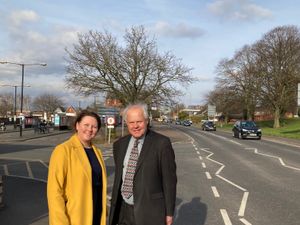UK seeks to step up EU talks as judge rules on Parliament suspension challenge
The PM says he wants to increase the ‘tempo’ of negotiations as the clock ticks down to the Brexit deadline.

The Prime Minister has said he wants to intensify Brexit negotiations with Brussels as a judge prepares to rule on a legal challenge aimed at stopping him suspending Parliament.
Boris Johnson called for both the UK and EU to “step up the tempo” as the clock ticks down to the October 31 Brexit deadline.
Downing Street said the UK’s team of Brexit negotiators will sit down with their EU counterparts twice a week during September “with the possibility of additional technical meetings, to discuss a way forward on securing a new deal”.
That was being seen as an attempt to calm the concerns of rebel Tory MPs opposed to a no-deal Brexit, some of whom are threatening to join opposition efforts to tie the PM’s hands by legislating against the UK leaving the EU with an agreement.
Meanwhile, a judge in Scotland will rule on Friday on a legal bid to block Mr Johnson’s move to prorogue Parliament for over a month during the Brexit countdown.
A court in Northern Ireland will also hear from lawyers representing anti-no-deal campaigners challenging the move and attempt to do the same at the High Court in London is also under way.
Those challenges were launched after the Queen approved Mr Johnson’s request for Parliament to be suspended for five weeks from September 10.
The PM said on Wednesday that Parliament had to be prorogued so he could set out his Government’s new legislative agenda in a Queen’s speech and bring to an end the recording-breaking session which has lasted more than two years.
But MPs and others opposed to Mr Johnson’s Brexit strategy have said he is trying to limit their ability to stop the UK leaving the EU without a deal.
Mr Johnson’s most senior minister on Friday dismissed the furore over the suspension of Parliament as “nonsense”.
Foreign Secretary and First Secretary of State Dominic Raab insisted only around four days of Commons sitting time would be lost in addition to the already-planned party conference break.
He told reporters at a meeting of EU foreign ministers in Helsinki: “The idea this is some kind of constitutional outrage is nonsense.
“It’s actually lawful, it’s perfectly proper, there is precedent for it and actually, fundamentally, for the people watching this, they want to see that we are leaving the EU but also talking about all the other things they expect us to be addressing.”
A cross-party group of around 70 MPs and peers are backing the action at Scotland’s highest civil court seeking an interim interdict, which would stop the PM taking the option of suspension until a final decision has been made on the case.
Judge Lord Doherty heard arguments from a lawyer for the campaigners and a legal representative for the UK Government at a hearing at the Court of Session in Edinburgh on Thursday and he is due at the same court on Friday morning to make a decision on the case.
Northern Ireland’s Lord Chief Justice Sir Declan Morgan, who sat for the short hearing at Belfast High Court on Thursday, will hold a substantive hearing on Friday morning.
A third legal challenge brought by campaigner Gina Miller at the High Court in London “is being considered”, according to a judiciary spokeswoman.
Opposition leaders have issued a rare joint statement demanding Mr Johnson reverses his decision to suspend Parliament or put it to a Commons vote.
Labour, the SNP, the Liberal Democrats, Plaid Cymru, The Independent Group for Change and the Green Party said the PM’s actions were undemocratic, and had “the sole aim of stopping MPs from avoiding a no-deal Brexit”.
In a separate letter to his MPs, Labour leader Jeremy Corbyn encouraged them to join public protests against a no-deal Brexit.
He said: “There are also public protests across the country this Saturday, there will be a rally in Parliament Square on Tuesday evening, and I encourage Labour MPs to be present and to share our message.”
It followed thousands of people protesting outside Parliament on Wednesday evening, while there were smaller demonstrations in other towns and cities.
Leading rebel Tory David Gauke, a former justice secretary, said next week may be the only chance for MPs to stop a no-deal Brexit.
“I think Parliament does have a responsibility to act and it may well be that next week is the only opportunity for us to do so.”
The Times reported that Tory rebels have drawn up plans with Labour for Parliament to sit over the weekend of September 7-8 in order to try to pass laws to stop a no-deal Brexit.
Mr Johnson faced resignations on Thursday by Scottish Conservative leader Ruth Davidson and veteran Tory minister Lord Young, in part due to the Government’s approach to leaving the EU.
Former minister Richard Harrington – who has been a vocal opponent of Mr Johnson’s Brexit strategy – also said he will not stand again at the next general election.
The UK’s chief Brexit ‘sherpa’ David Frost met this week with the EU’s Article 50 Taskforce and agreed that talks would be intensified.
However, the EU’s chief Brexit negotiator made it clear he was not ready to retreat on the issue of the Northern Ireland backstop, despite pressure from the Prime Minister.
Mr Barnier tweeted: “PM @BorisJohnson has said that the UK will leave the EU on 31 Oct. In all circumstances, the EU will continue to protect the interests of its citizens and companies, as well as the conditions for peace and stability on the island of Ireland. It is our duty & our responsibility.”
Meanwhile Foreign Secretary Dominic Raab has announced the Foreign Office will provide up to £3 million in grant funding for charities to help UK nationals living in the EU who may struggle to complete the necessary residency applications.
He said: “The UK will be leaving the EU on October 31 and we want to help UK nationals living across the EU to be fully ready for Brexit, whatever the circumstances.
“This funding will ensure people get the support they need to apply to protect their residency rights and access to services.”





